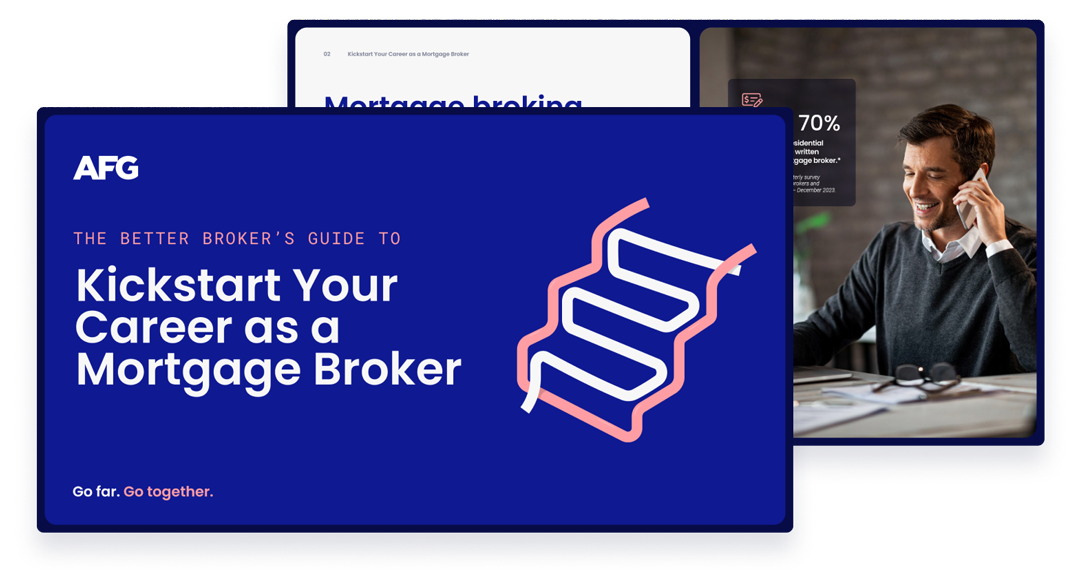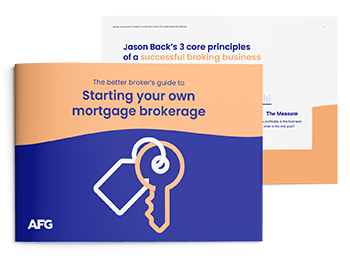Building a career around becoming a mortgage broker is a rewarding opportunity to help people who trust you with one of the most important financial decisions they’ll ever make.
You’ll have the opportunity to build a robust, secure and successful business, with autonomy over your own work, a chance to be constantly learning and improving on your experience, and better still, the ability to make a good living from your work.
So, where do you start?
Firstly, what does a mortgage broker do?
Getting a better understanding of the day-to-day realities of the profession is essential for those contemplating this path.
If you become a mortgage broker you’ll help their clients to gather their financial records, prepare and present an application for a loan and negotiate with lenders on things like competitive rates or introduce your clients to loan features of benefit to them.
Brokers work primarily to guide their customers through the process of selecting and applying for a home loan. A home loan mortgage broker will look at their customers’ unique needs or circumstances and assist them in finding an appropriate product.
Put simply, mortgage brokers are equipped with information and experience to help their customers make sense of the complexities of getting a loan and to help them apply for one.
Your day-to-day as a mortgage broker
Typically, it will include the following:
- Assess customers on their financial circumstances, goals and needs
- Help to collect financial records for their customers’ assessment
- Brief your customers on the range of lenders and their home loan products available to them
- Help your customers to understand the terms and conditions of those home loan products
- Keep your customers informed of the potential implications getting a home loan will have on their financial position
- Oversee the completion of loan application paperwork, and submit the application
- Coordinate a client’s home loan application process with the lender
- Present home loan documents to clients, explaining contract details and implications and getting the loan signed off
- Engage with the clients’ other service providers, which may include real estate agents, solicitors or conveyancers, accountants and financial planners.

Kickstart your career as a mortgage broker
Download the ultimate “how to” guide to get started in the industry.
Choosing your path
Before diving headfirst into the deep end, you should ask yourself: are you currently more suited for self-employment, or a salaried role?
Understanding your initial motivations for becoming a broker will help you to carve out your path, at least for the early days of your career.
A salaried role with an existing broker group is a stable option, because you’ll be receiving a lot of the support that’s essential for new brokers, such as training, marketing, branding and compliance, and these will be already set up for you. Of course, there’s no reason to say you can’t move on to self-employment at a later stage!
If you become self-employed, you’re going to need to wear a lot of hats, as you’re going to be solely responsible for how successful (or unsuccessful) you’re going to be. Think about it. Is that something you’re ready for?
What qualifications am I going to need to become a mortgage broker?
Ok. It’s time to do your research.
The minimum qualifications you’re going to need to launch your broker career are a Certificate IV in Finance and Mortgage Broking or Diploma of Finance and Mortgage Broking Management.
You will be able to find a range of Registered Training Organisations (RTO) near you that offer these courses.
At AFG, we usually suggest the following providers to help you complete these broker training courses:
When I started as a broker, I couldn’t relate to the challenges of buying a first home.
Over time, you build up work and life experience and can relate to people a lot more.
It’s easy to be friendly and nice to a client, but if you struggle to be in their shoes there’s only so far this can go.
A mentor helps shape that empathetical point of view and can help you skip that learning curve, so you’ll become a much more successful broker much faster.
Kade French, The Newstead Group
If you’re going to become a broker, you’re going to need support
When you become a broker, it’s going to be important to have experience in your corner. You’ll need someone to guide and help you through the challenges that every fledgling broker must face. When you’ve completed your qualifications to become a broker, let’s talk!







